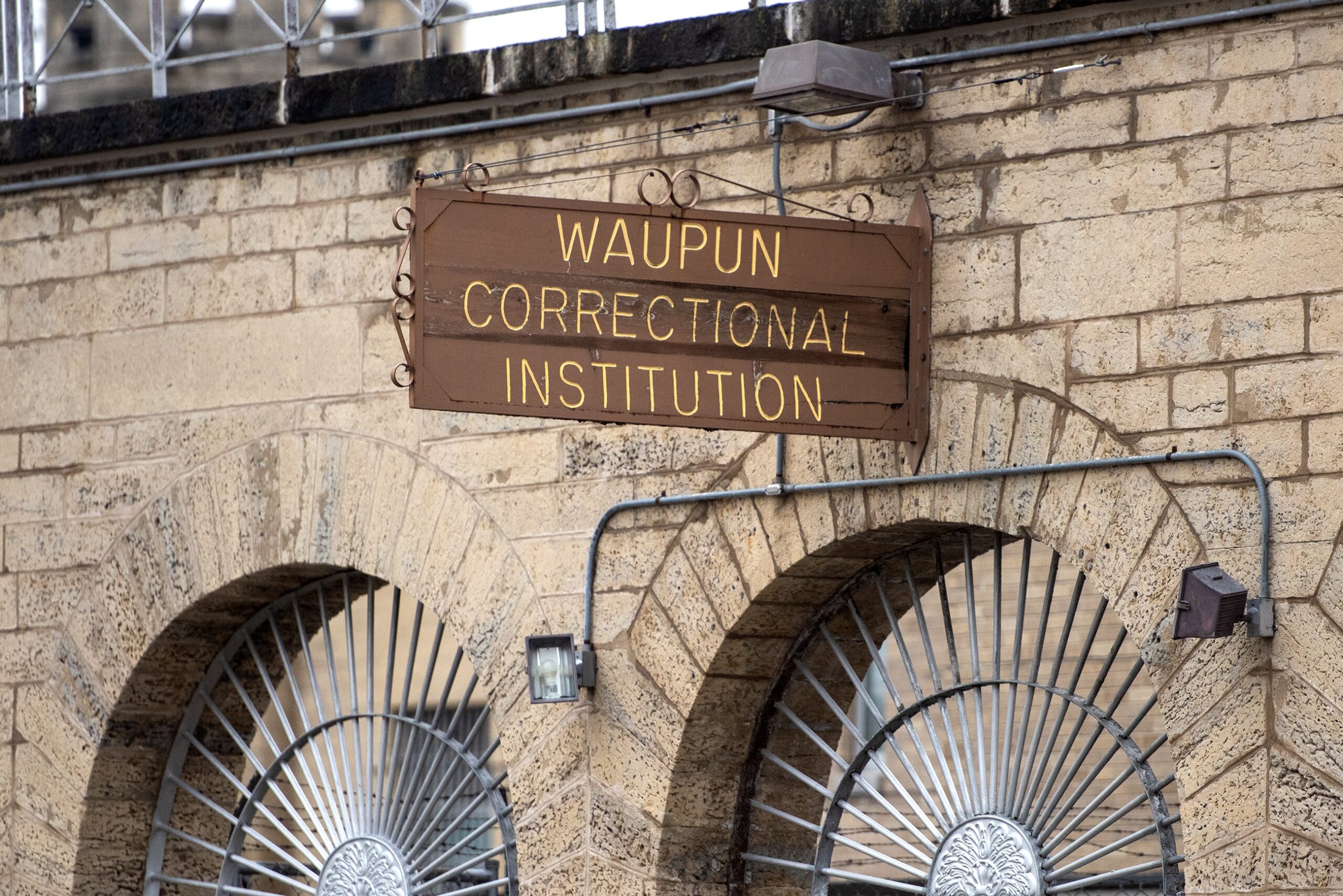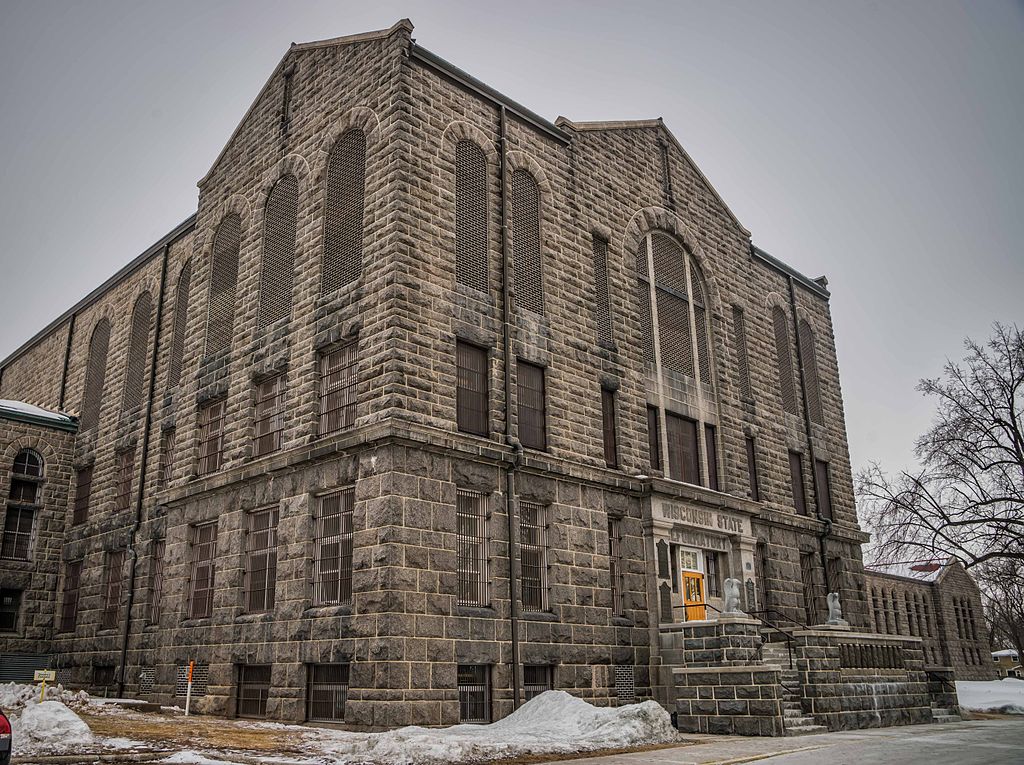The co-chair of Wisconsin’s budget-writing committee is calling for a new oversight agency on the Department of Corrections.
Republican Rep. Mark Born of Beaver Dam said on WPR’s “Wisconsin Today” that it’s clear the state needs more oversight after criminal charges were brought against the former warden and eight other employees at Waupun Correctional Institution over the deaths of two inmates.
“We know there are a lot of good staff doing the right thing, doing good jobs to help keep our communities safe,” he said. “But the fact that this occurred — and the extent that it occurred and led to some very tragic outcomes — we just think that there’s more accountability that’s needed.”
Stay informed on the latest news
Sign up for WPR’s email newsletter.
Born said he’s working with fellow Republican Rep. Michael Schraa on drafting what the new agency could look like. He believes state prisons should be reviewed similarly to how the oversight of county jails already operates. But unlike county jails, Born said the state watchdog group would likely be housed outside of the Corrections department itself to avoid conflicts of interest.
On “Wisconsin Today,” Born discussed his hopes for independent inspections, prison staffing challenges and modernizing the state’s facilities.
The following was edited for brevity and clarity.
Kate Archer Kent: I would imagine this type of inspection would allow these facilities to make corrective action before laws would be broken.
Mark Born: That’s probably the best part about it. Before I came into the Legislature, I worked for the Dodge County Sheriff’s Department Corrections division. I’m very familiar with both Corrections and the inspections that took place.
Oftentimes, the inspections didn’t find major problems because things were being run appropriately. But when they did identify something, it was a chance to improve, a chance to change a policy or change the way we were training something to make sure that things were running the best they could in compliance with policy and the law. And also for the safety of everyone. It’s just as important for safety to be in place for the staff as it is for the folks that are housed in these facilities. We really viewed those inspections as an opportunity.
KAK: Let’s talk about the safety of these buildings themselves. Parts of Waupun Correctional Institution were built in the 1800s, Civil War era. Consultants in 2019 said replacing the century-old prison near Green Bay would cost $500 million. Should the state replace these facilities with new prisons?
MB: There’s no doubt it’s very expensive to replace these facilities. But it’s also very expensive to run them. They’re not designed to be run by today’s standards. Now, that doesn’t mean they can’t be run safely, they can be. It just means it costs a lot more to do that, especially with staffing costs.
We have to staff these prisons with a lot more people, which is of course challenging right now with the workforce being a challenge everywhere. But the way to run these prisons safely is with higher costs and more staffing. While the price tag would be big to build it, there would be cost savings over time. It would be safer to run with fewer people. That’s where I think the discussion should be. Certainly as co-chair of the budget committee that’s one of my focuses. How can we run safe facilities that are safe for everyone, the folks working there and those being required to live there?
KAK: I want to talk with you about that challenge. We’ve heard of lockdowns for hundreds of days at Waupun. The state raised wages for corrections officers to $33 per hour last summer. Is that enough to address staffing shortages at these state prisons?
MB: The numbers appear like it’s having a very positive effect. At most other facilities, the numbers have come down quite a bit. The recruit classes have been very large. It’s certainly having the desired effect. But whether or not it’s enough to do it alone, only time will tell. And part of that is because of the workforce challenges everywhere. There are only so many folks in the market for any kind of a job right now. And that’s part of why the discussion should be that if we build a modern facility, we can safely staff it with fewer people. And that, coupled with these major increases in wages can certainly be part of the solution long-term.
KAK: The Wisconsin Policy Forum says Wisconsin has one of the highest incarceration rates in the Midwest. Beyond a facility, should the state be lowering its prison population?
MB: There are certainly things we can look at to do that. But you’ve got to remember that the prisons we’re talking about here in Waupun and Green Bay are maximum security facilities. We’re never going to have no need for maximum security prisons. These house our worst offenders. Folks that you might be releasing earlier or on earned release and things like that are going to be in your minimum and medium security facilities. Population could change there, but we’re certainly going to have a maximum security need in the future.



